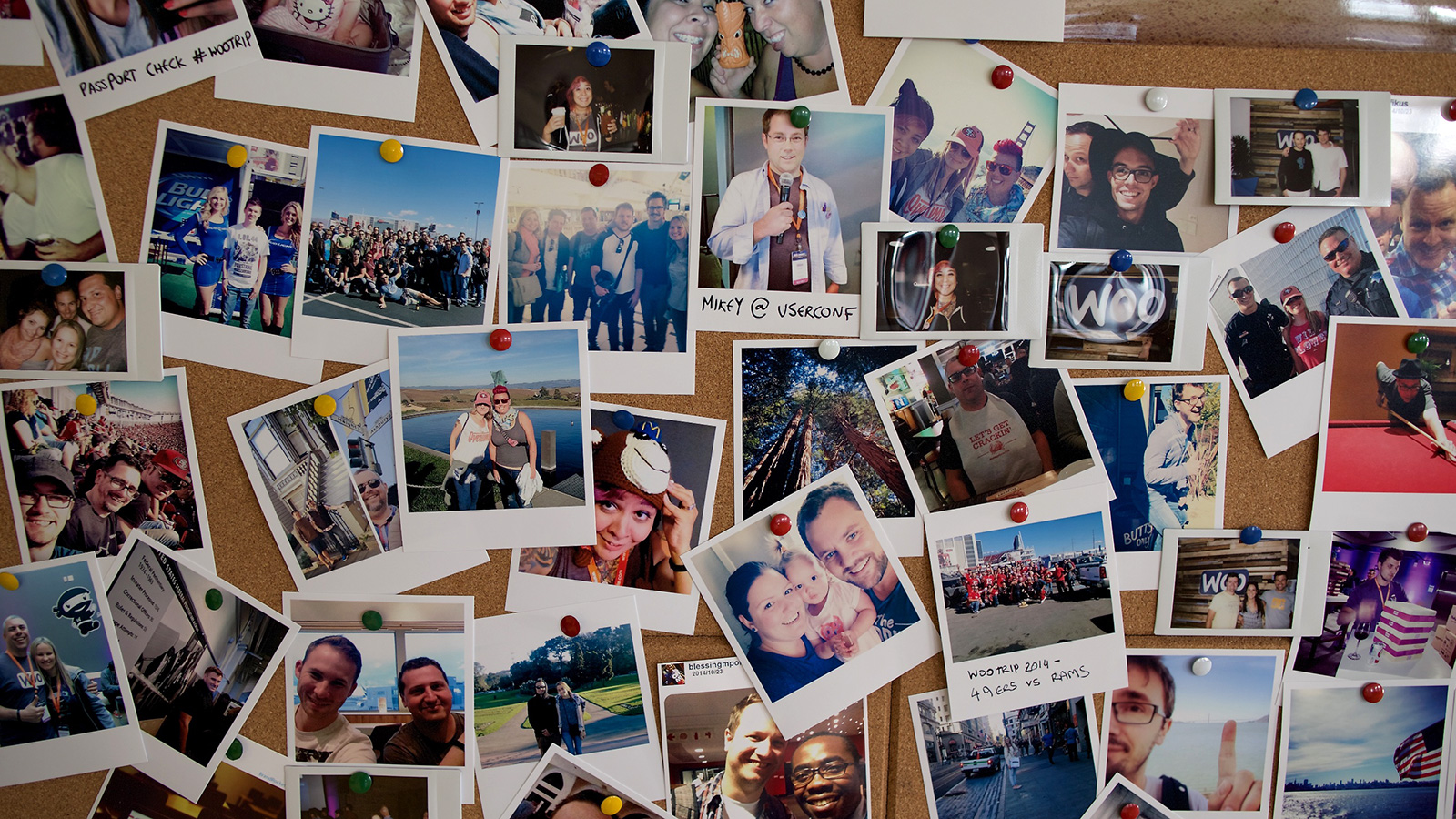From day one, WooThemes has been a distributed company with a remote-working team. ‘Based on the internet’, we say, but with a brick and mortar office in Cape Town, South Africa (where we’re registered). What’s the point of an office for a team spread far and wide? A fair question and to answer it, here’s the story of WooHQ.
Growth without boundaries
Initially, most of our team growth happened in Cape Town – with everyone commuting to the office, even though the three co-founders were all in different countries.
It wasn’t long before our international team overtook the South African contingent in size – sourcing highly skilled WordPress culture fits was easier when we removed the confounds of location.
Our Cape Town team worked out of an office Monday – Thursday, with a work-from-home Friday. We were (and remain) big fans of the four day work week, made famous by Ryan Carson, but being largely a support company dealing with customers 24/7 this idea had to be retired.
Fast forward to today and the South Africans make up 14 of the 53 global team with 11 of us in Cape Town.
An office is a personal preference
Our first office was in a pretty dull business park. It was a convenient location for the bulk of the team, but wasn’t an inspirational headquarters (as much as our wall vinyls and funky furniture tried to make it so). We only had the choice of one decent restaurant, accounting and legal firms as neighbours, and a hard-to-find address.
However much we believed in making the most of having so many team members in one location – and the resulting think tank office – it was a growing problem that we had different rules for our Cape Town team and international team. Forcing some to work particular hours at a particular place? Not cricket.
We made the decision to standardise our distributed working guidelines to the whole team and the office was no longer a requirement.
All of a sudden the office was a ghost town. This new privilege was well received and well used. Some team members struggled initially with the freedoms, but quite quickly realised the importance of discipline and routine when working from home.
Our international team were more unified – more productive even – no longer at risk of making assumptions about online vs offline communication. We had better organisational memory.
We then had to make the difficult decision about whether to cancel our office tenancy. What were the real benefits of our office?
And I guess that is where this post gets a little more personal, and my views might not be reflective of everyone on the team.
Re-defining headquarters
I think it’s hugely important for a company to have a fun, transparent and honest identity reflective of the people that work for it and the culture they instill. Whilst that identity shouldn’t be defined by or reliant on a location – especially when the team spans 16 countries – having 11 people in one city is too big an opportunity to miss without creating a physical space – that feels like a home, and the heart – where those up for it, can meet.
All this coupled with the fact that South Africa proudly makes up a big part of our story, with Norway chasing its’ coat tails. Building an international company, outside of one of the traditional tech hubs, was something we wanted to make much of. Some good news from South Africa was something we were happy to be creating.
And so we decided not to close the office, but to move it, and make it a more aspirational place people would want to go.

Woodstock is the heart of the creative industry here in Cape Town, and is where we set our sights. Bustling with hipsters, agencies and craft breweries it is an undeclared beacon of gentrification, hope, urban renewal and creative thriftiness.
Specifically, we moved to one of Cape Town’s most recognised tourist destinations, The Old Biscuit Mill, famous for it’s amazing Saturday food markets, housing South Africa’s most recognised restaurant, and playing host to one of Africa’s best coffee roasteries.




This office is a closer reflection of who we are – and better frequented than it’s predecessor. We want it to feel like a home for our team, a place our digital nomads have on their list to travel to and spend time in and have recently started a photo wall which is dotted with highlights from our meetups and memorable moments together.
We’ve got meeting rooms for hosting regular team hangouts, plenty of desk space, a fibre internet connection (it works most the time – this is Africa after all…), a generous bar area, a branded air hockey table, and of course an XBOX lounge. All packed into a very affordable 250 square meters, it’s all we need.

The perks of being a distributed company are infinite, but it’s important for your story to not get lost in the vastness of the internet. With so many countries, origins, emails, notifications and electronic things wrapped up in what we do, there is something poignant and quaint about a humble brick and mortar space.
WooHQ turns our digital identity into an IRL destination for team and friends, where we celebrate the journey we’ve been on and shoot the breeze with coffee or craft beer in hand.
If you’re in the area, do come and visit. Friends of Woo (and foes) are always welcome.

Thanks to Marina for helping edit this post and Magnus for the proofread.


2 responses
This is an awesome write up, and its pretty great seeing behind the scenes of a remote company that has created such an awesome community within another awesome community of WordPress. You guys are doing amazing things, stay brilliant.
[…] WooThemes co-founder Mark recently pointed out; this positive voice coming from (South) Africa is one of the reasons we have our HQ in Cape […]